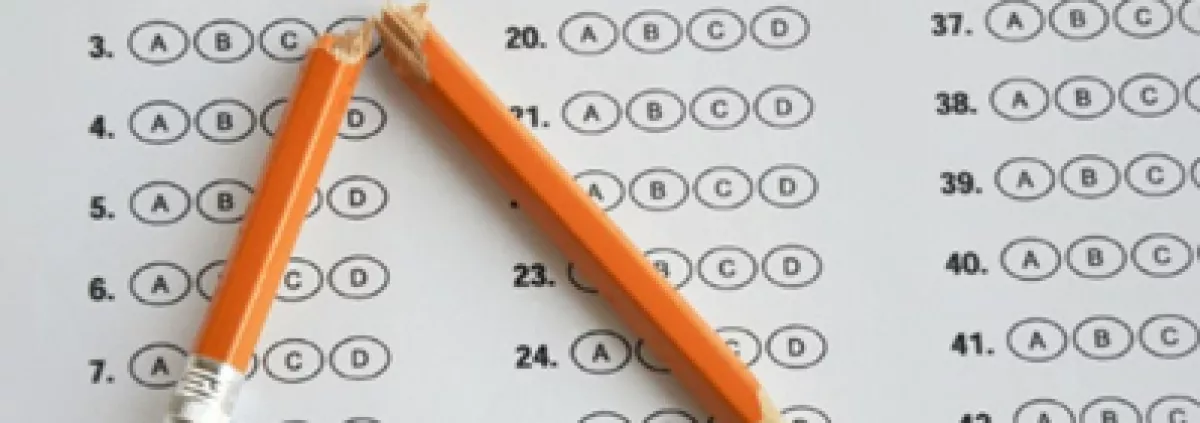What grade do you have?
What do you remember most when you think about assessment during your education? I guess most of us will mainly remember the written tests and final assessments. We would look at our grade and be happy with a good grade and disappointed with a bad one. After a low grade we might have thought we had to work harder, but was there also any useful feedback on how to change our learning or what to focus on?
In general assessment can have two purposes:
- Assessment can have an internal focus supporting the learning process itself. The results of assessment inform the further learning process.
- Assessment can have an external focus. Here the results of assessment are used to show the outside world that someone has achieved the required competences or learning outcomes.
These different purposes are reflected in the two different schools my colleague Arjen wrote about in his blog. In the second blog on assessment my colleague Anatolii wrote about the need for independent assessment emphasising the external purpose of assessment. Anatolii writes ‘In every crisis lies an opportunity’ referring to COVID19. He argues for more independent assessment. But we might be over emphasising this part of assessment, losing the actual goal of education facilitating learners during the learning process, enhancing curiosity and stimulating the motivation to learn. Formative assessment can play an important role in this regard. Therefore I would see an opportunity in this crisis for more emphasis on formative assessment.
When talking about formative assessment I noticed that there are different understandings of what formative assessment means. Sluijsman and colleagues (2013) conclude this as well in a review study on formative assessment and they distinguish seven dimensions where there are different understandings of what formative assessment entails:
Classroom assessment versus formative feedback: Classroom assessment on one side refer to all kinds of assessment in the classroom to inform learners and teachers about the progress made. Studies that focus on formative feedback only include those activities where feedback stimulates learners to self-regulate their learning process. This includes assessment for learning and assessment as learning.
Stimulating learning of learners versus learning of teachers: Who is using the information collected through the assessment? Are it mainly the learners who use the information to regulate their own learning process. Or is it mainly used by teachers to reflect on their teaching practice?
Instrument versus process: There are studies that focus more on the instruments used in formative assessment, whereas others emphasis that formative assessment is a process. These studies emphasise the development of this process and the skills teachers need to implement this process.
Summative versus formative: This might seem a strange dimension when talking about formative assessment, but it is relevant. In some definition all assessment that does not contribute to the (final) summative decision is called formative. Here the formative assessment could still include mainly regular tests with grades and little attention for feedback and self-regulation of the learning process. Whereas formative in this dimension refers to the assessment that is really used to stimulate self-regulated learning.
Organised versus on-the-fly: this is the difference between formative assessment activities fully planned and organised from the beginning and formative assessment activities created spontaneously during the learning process.
Teacher centred versus learner centred: Formative assessment can be fully created by the teachers, where the teacher defines the objectives, criteria and activities or they can be more learner centred where the learners have a role in defining the objectives, criteria and/or assessment activities.
Step-by-step or fully embedded in the learning cycle: Here the question is whether formative assessment is planned at certain moments (step-by-step) or whether it is an integrated and automatic part of the learning process.
This blog is just an introduction to formative assessment. We would like to explore together with you how we can make better use of formative assessment to enhance learning. Would it be even possible to use results of formative assessment in making formative decisions? We will follow up with a webinar on formative assessment in September. Furthermore we will use Open Space to share more information on how formative assessment can take place. For now I would like to ask you, how would you define formative assessment? And what opportunities do you see to make more use of assessment for learning instead of assessment of learning? So learners don’t just ask each other after an assessment anymore ‘What grade do you have?’, but will use the outcomes to enhance their learning process and will be motivated to learn more!
Reference:
Sluijsmans, D. M. A., Joosten-ten Brinke, D., & Van der Vleuten, C. P. M. (2013). Toetsen met leerwaarde. Een reviewstudie naar effectieve kenmerken van formatief toetsen. [Assessment with a learning value. A review study on the effective characteristics of formative assessment]. NWO-PROO 411-11-697. Den Haag: NWO.

Please log in or sign up to comment.